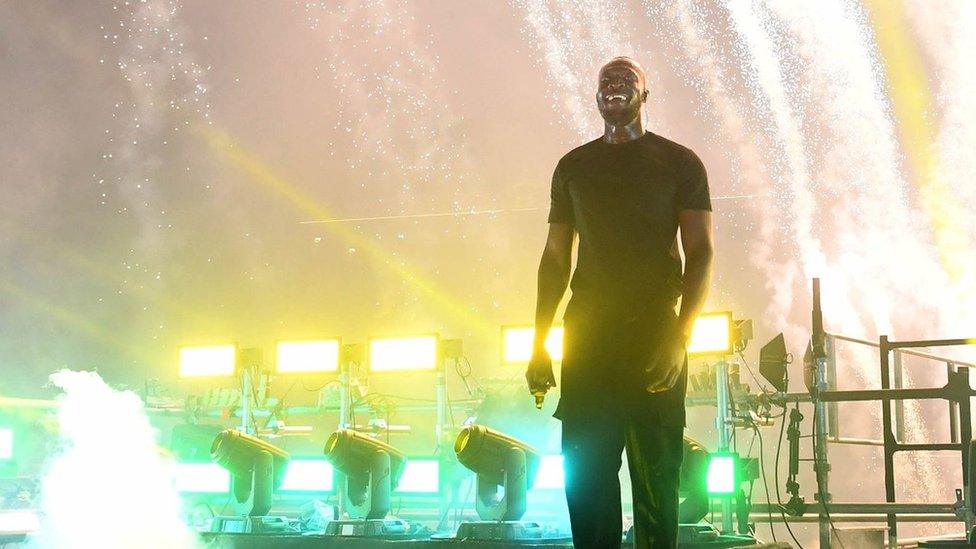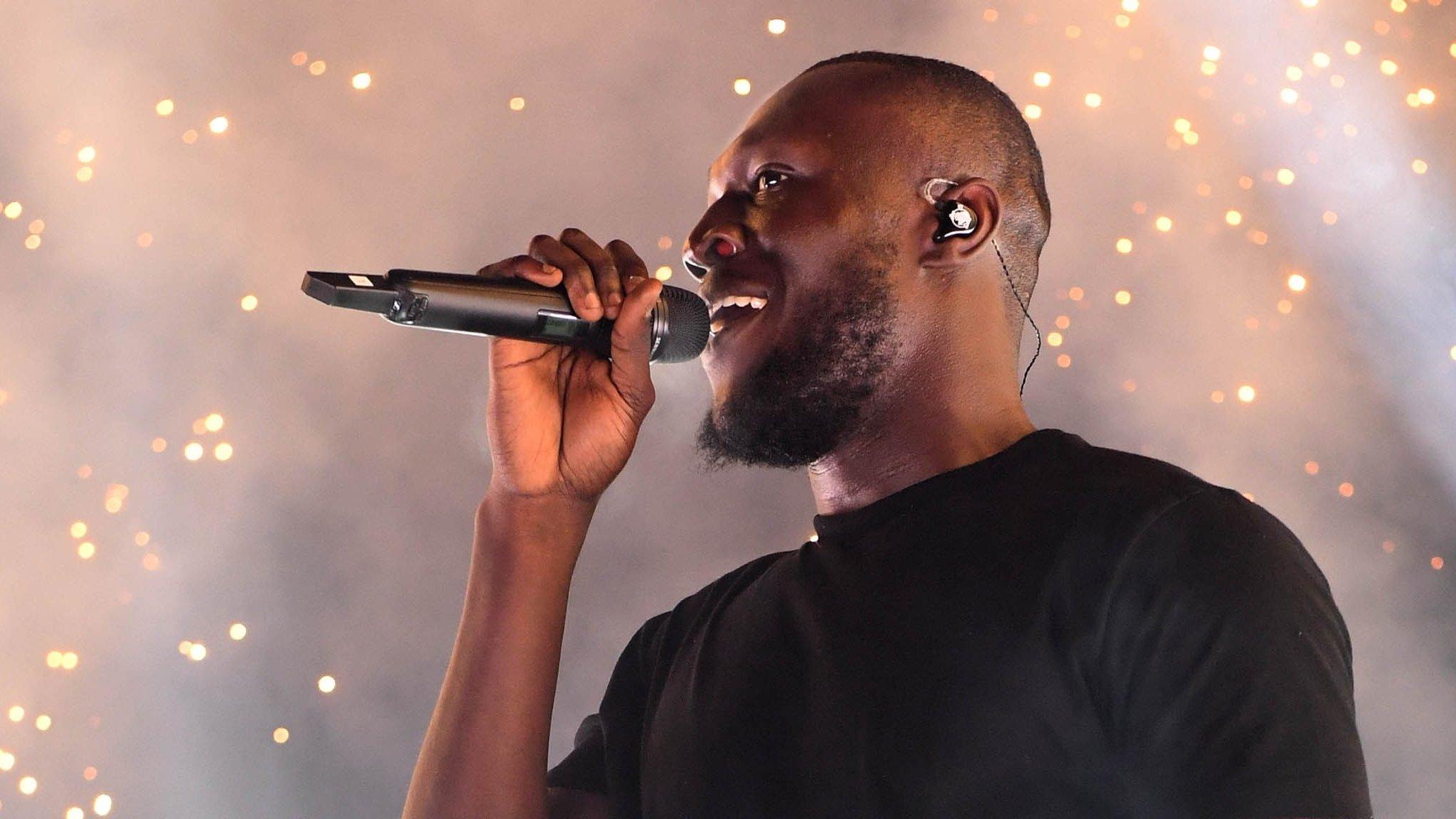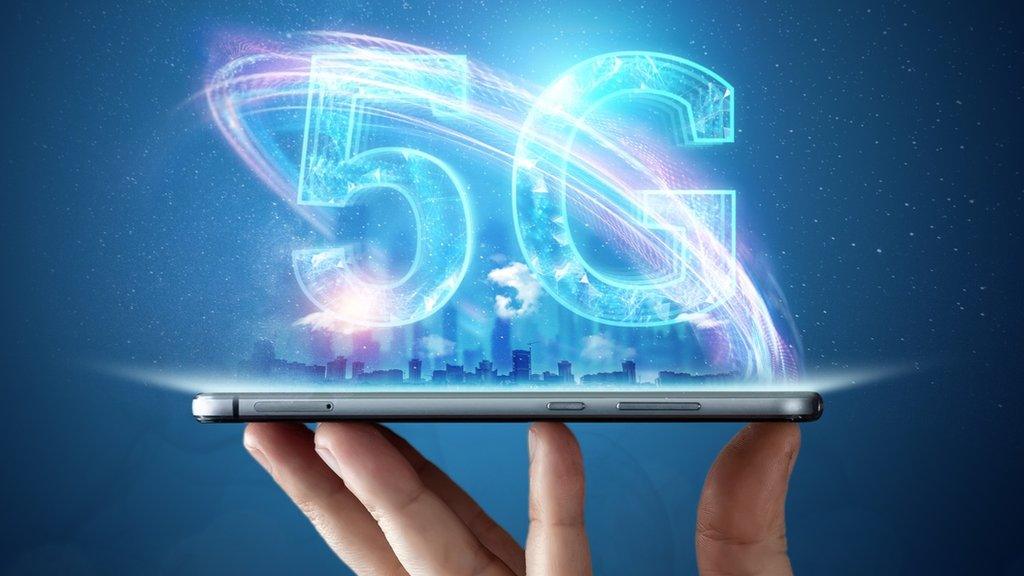Tech Tent: Why is 5G data capped?
- Published

Stormzy launched EE's 5G network
With a flash of fireworks and a song from rapper Stormzy, the UK welcomed the arrival of its first 5G mobile network.
On this week's Tech Tent podcast, we explore the benefits this next-generation tech is supposed to bring, and ask whether people are likely to pay a premium to upgrade.

Chris Fox is sitting in for Rory on this week's podcast
In the race to launch the UK's first 5G network, it was BT-owned EE that got there first - although the service is only available in a handful of cities at the moment.
To put it to the test, our technology correspondent Rory Cellan-Jones went to Covent Garden in central London, to appear live on the BBC News channel via 5G video link.
His broadcast went smoothly, although afterwards he revealed there had been a small technical hitch.
Three days of testing the video-streaming technology had hit EE's data cap. The Sim card needed "topping up" before he could go on air.
Data cap anxiety?
Despite one of the benefits of 5G being a huge increase in network capacity, all of EE's new price plans come with a data cap.
The cheapest tariff - £54 a month with a £170 fee for a compatible handset - has a data cap of 10GB.
We're told 5G will let us stream ultra-high definition 4K movies in an instant - but you would soon use up your 10GB allowance doing that.
When the mobile networks first introduced data caps on 3G tariffs, it was touted by the networks as a necessary step for them to manage demand on congested networks.
A cynic might suggest it was also a way to boost revenue, as the number of lucrative SMS text messages being sent dwindled.
Are we about to see "data cap anxiety" carry over into the 5G era?
The fast download speeds of 5G make it a good candidate for replacing fixed-line home broadband - but not with a restrictive data cap. Downloading one video game on a console could easily blow through 30GB of data.
EE has not revealed its tariffs for 5G home broadband. But as the only player in the market right now, it can charge early adopters what it likes.
EE told the BBC that some of its 5G tariffs included their biggest data allowances to date and that 10GB was "plenty" for many customers.
It also offers customisable "data passes" so that video games or video streaming, for example, are not counted towards your data use.
When Vodafone switches on its 5G service in the coming weeks, we may see some more competitive prices - and less restrictive data caps.
Perhaps, with the increase in capacity promised by the next-generation tech, it will do consumers a favour and banish them entirely.
Allow X content?
This article contains content provided by X. We ask for your permission before anything is loaded, as they may be using cookies and other technologies. You may want to read X’s cookie policy, external and privacy policy, external before accepting. To view this content choose ‘accept and continue’.
Also on the podcast this week...
- Published30 May 2019

- Published30 May 2019
